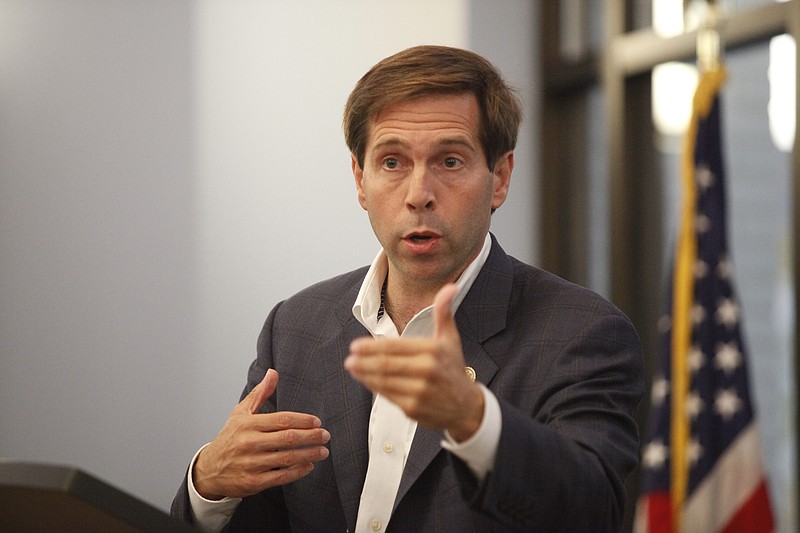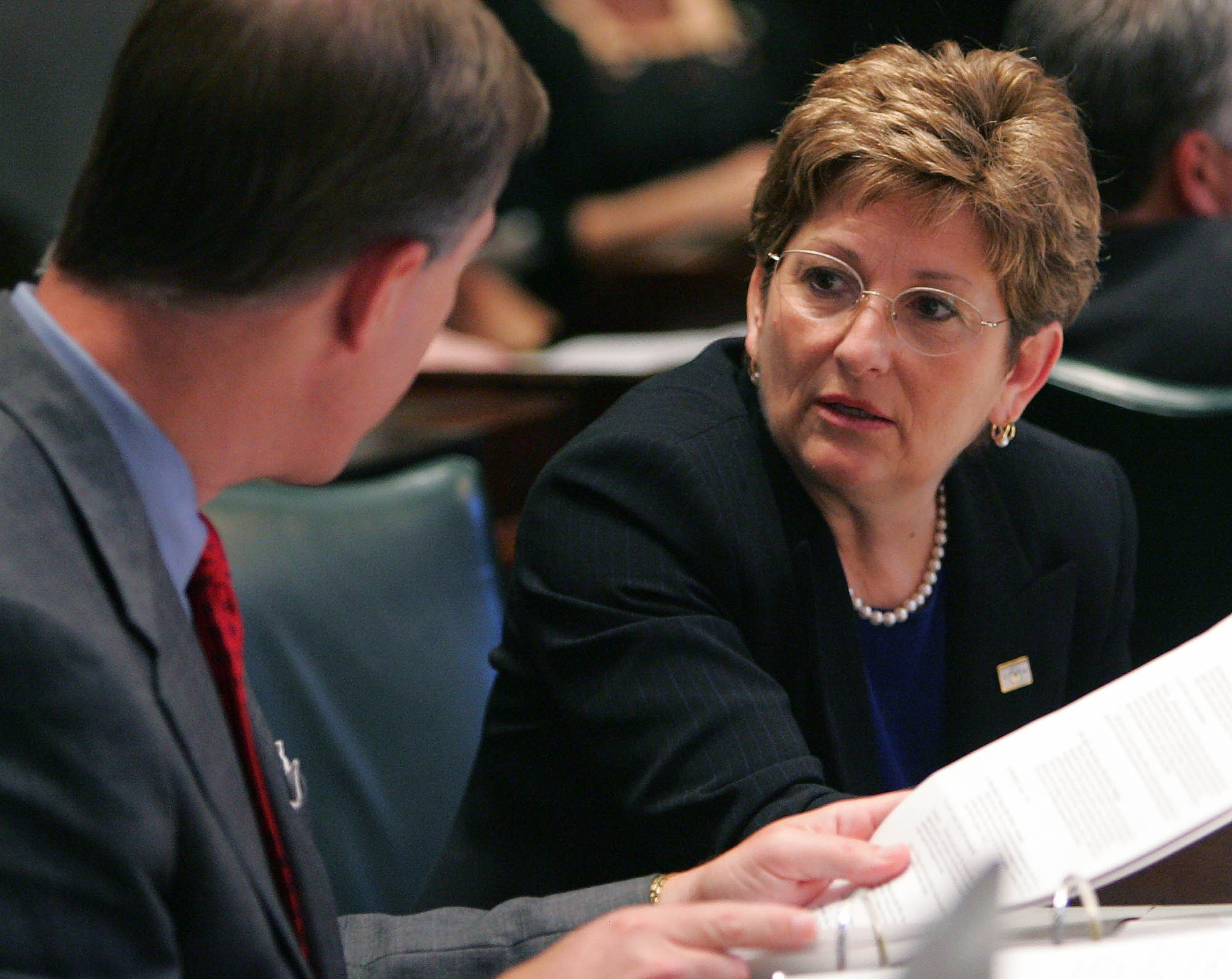U.S. Rep. Chuck Fleischmann's proposal to eliminate capital gains taxes for two years would benefit 46 percent of Congress, including its 15 wealthiest members, a bipartisan group with a combined net worth of at least $1.26 billion.
Using a conservative think tank's study to back up his words, the Chattanooga Republican has said his proposal would create jobs and unleash savings for ordinary Americans.
"It's a policy that might benefit many of their constituents, many of their top donors and many of themselves personally," said Michael Beckel, a spokesman for the Center for Responsive Politics, a nonpartisan group that tracks money and influence in Washington. "When you're talking about Congress, you're talking about a rich group of people."
Jordan Powell, a spokesman for Fleischmann, said "this bill is aimed at helping Americans from all walks of life."
"Having run a business for 24 years, he understands the benefits of being able to have more of your own capital available to put back into the economy or grow a business," Powell said. Fleisch-mann is an attorney in private practice.
Luxuriating in capital gains is not exclusive to either party.
The second-richest House member, Rep. Darrell Issa, R-Calif., reported between $65 million and $175 million of income that included capital gains last year. House Minority Leader Nancy Pelosi, D-Calif., listed between $1 million and $5 million in straight capital gains. Federal law requires U.S. representatives and senators to disclose their financial holdings, but only in wide ranges. The Capitol Hill newspaper Roll Call compiled the list of the richest members.
Members of Congress reported capital gains on all sorts of transactions, ranging from Apple stock to cattle to Civil War collectibles. Of 142 Republicans and 107 Democrats who reported capital gains income this year, potential beneficiaries include Tennessee Sens. Lamar Alexander and Bob Corker, the former Chattanooga mayor and 14th-richest member of Congress.
In a statement to the Times Free Press, Corker did not endorse Fleischmann's bill.
"I haven't seen the proposal, but in talking with deficit committee members I'm not aware of any discussions that single out a specific tax provision," he said.
Nine Republicans, including presidential hopeful Michele Bachmann and Congressman Allen West of Florida, are co-sponsoring the bill, Powell said.
The proposal is currently with the House Ways and Means Committee. A bill passed by Congress and signed by President Barack Obama last year calls for an increase in capital gains taxes starting in 2013.
Tennessee figures
Republican Rep. Diane Black led Tennessee's House delegation with between $5 million and $51 million in income that included capital gains. Including Black, five of Tennessee's nine representatives reported capital gains income, ranging from a few hundred to a few million dollars. Fleischmann himself reported an investment portfolio valued between $500,001 and $1 million that included capital gains income.
Fleischmann has said he's "never thought of my own financial situation one time" in Congress. His office cited a study by the National Center for Policy Analysis, a conservative think tank, showing more than half of all tax filers with capital gains had incomes of less than $50,000 in 2005.
Capital gains are commonly realized through the sale of stocks, bonds and property. Fleischmann's idea isn't new -- President George W. Bush persuaded Congress to lower capital gains tax rates in 2005, and GOP presidential candidates Michele Bachmann, Herman Cain and Newt Gingrich have suggested complete elimination.
Fleischmann made capital gains the central issue of his seven-point job creation plan, but his "Growing Jobs Through Capital Act of 2011" lacks a requirement to spend potential savings on jobs.
"Chuck will not include a provision to force people to spend their own money in a certain way," Powell said. "The entire point of his [jobs plan] is to get the government out of the way and let Americans use more of their own resources."


